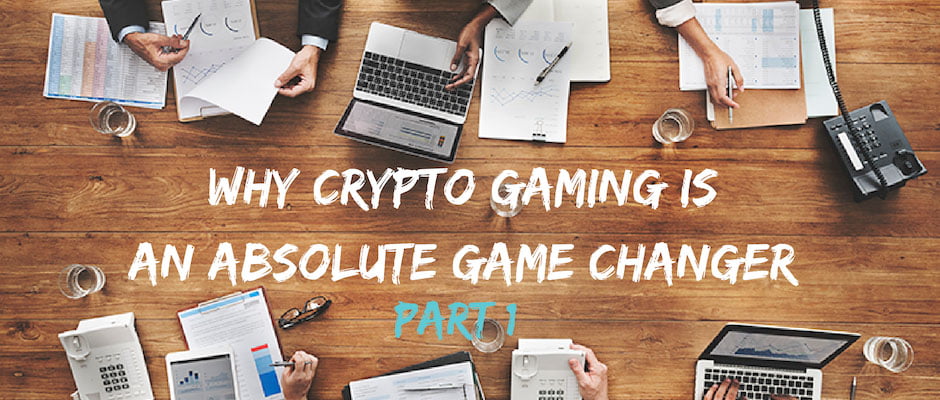Blockchain industry has been constantly growing in the last 18 years and the research companies predict that it will continue its steady growth in the near future. After revealing its potential in the financial industry, the blockchain technology is spreading its influence over the gaming industry as well.
There are countless numbers of gamers worldwide who love game titles offering in-game currency. Regardless of how they call it- credit, power-ups, gold, extra lives, etc., the virtual money era dates long before Bitcoin even appeared. Clash of Clans and Hearthstone are just some of the famous titles being followed by tons of games created by independent developers to feature in-game currency and progress to their own virtual payment. Star Citizen has raked in millions of dollars selling virtual goods for a game that’s not even fully complete.
SuperData research declares that players spent approximately the huge amount of $82 billion on the “free-to-play” model games in 2016 and the numbers are nowadays rising. While talking in figures, just for the protocol, the game industry (PC games, mobile and console) has accumulated $108.4 billion of revenue for 2017, much generated by the same “free-to-play” games, which offer a complimentary gaming experience that can be of course enhanced by spending real money within the game (to buy power-ups, extra lives, etc.)
If already looking a lot like the crypto gaming is making a total blast, let’s dig a bit into the nature of crypto gaming and its importance to the contemporary gaming reality.
To start with, here is what Josh Stark, a co-founder of L4 Media shares about the DNA of crypto gaming
“Imagine that you’re a game developer about to release a new RPG. You decide that the audience for a popular FPS might really like your game, too. To draw people into trying your RPG, you offer the players of the FPS a really good exchange rate or special bonuses when they bring their FPS items into the RPG. Maybe a group of games all decide to share a common set of in-game items, or a shared currency, to benefit from the network effects of giving players more to do with their “money””’.
The dawn of crypto gaming flows in a completely new generation of games featuring their own decentralized economic systems
Most modern games are fully centralized. This means that everything from the graphics, through game design to virtual goods is controlled and put under the ownership of the game developers. Automatic game updates are often forced without giving the players choice to opt out. Even if they try to delay them manually, this immediately stops them from playing online or enjoying the user experience from any feature updates. This situation provokes them to sooner or later accept the patch.
As per a very intriguing article in Digital Trends about The future of blockchain in gaming, blockchain is effectively a digital ledger without a master copy. Transactions aren’t stored on a seperate computer but on a large network of computers, and they’re verified the same way. They are recorded across the whole network via a shared record which no single computer holds.Thus transactions remain valid even when a PC goes offline – this is called ‘cold storage’ in the world of Bitcoin.

It’s just the decentralization that makes true ownership possible.The database exists independently of any person/organization, which is a warranty that the records are fair. That’s where the label “trust-less” comes from amongst the blockchain circles. It’s not about the fact that blockchain can be trusted but it’s about the fact that trust is actually unnecessary because fraud is impossible on the blockchain itself.
Decentralization also enables developers to put responsibility at arm’s length. Possible scams or attacks would be already blamed outside the developer’s control, similarly to a player’s social media accounts or email. Blockchain would make it difficult, let’s say almost impossible for developers to restore a weak password for example, if asked by the players. Players would now have to take all the responsibility within the ownership…


